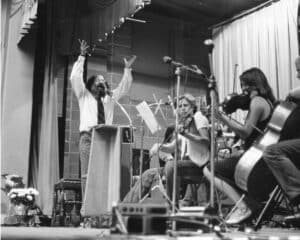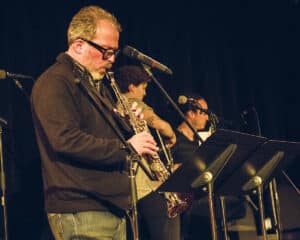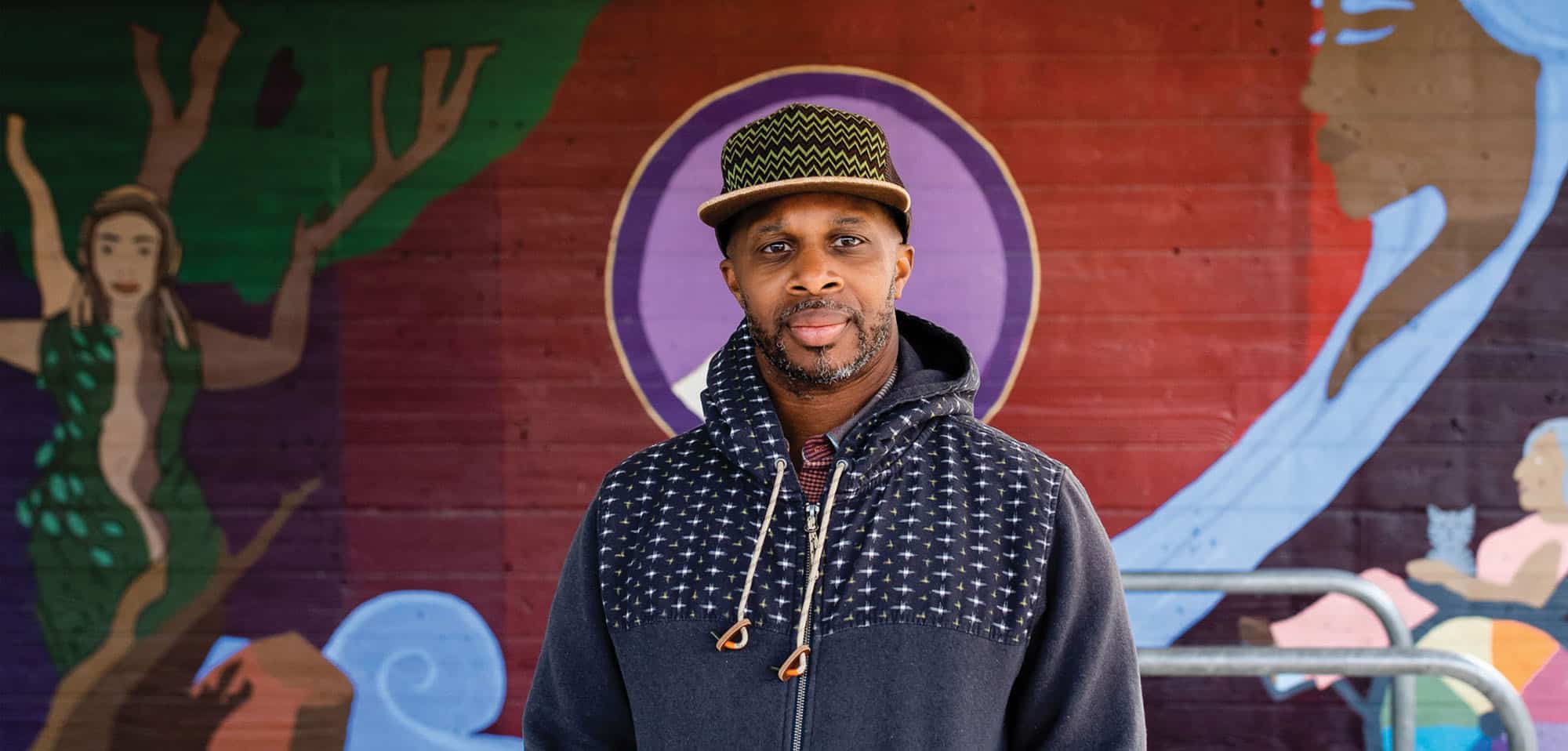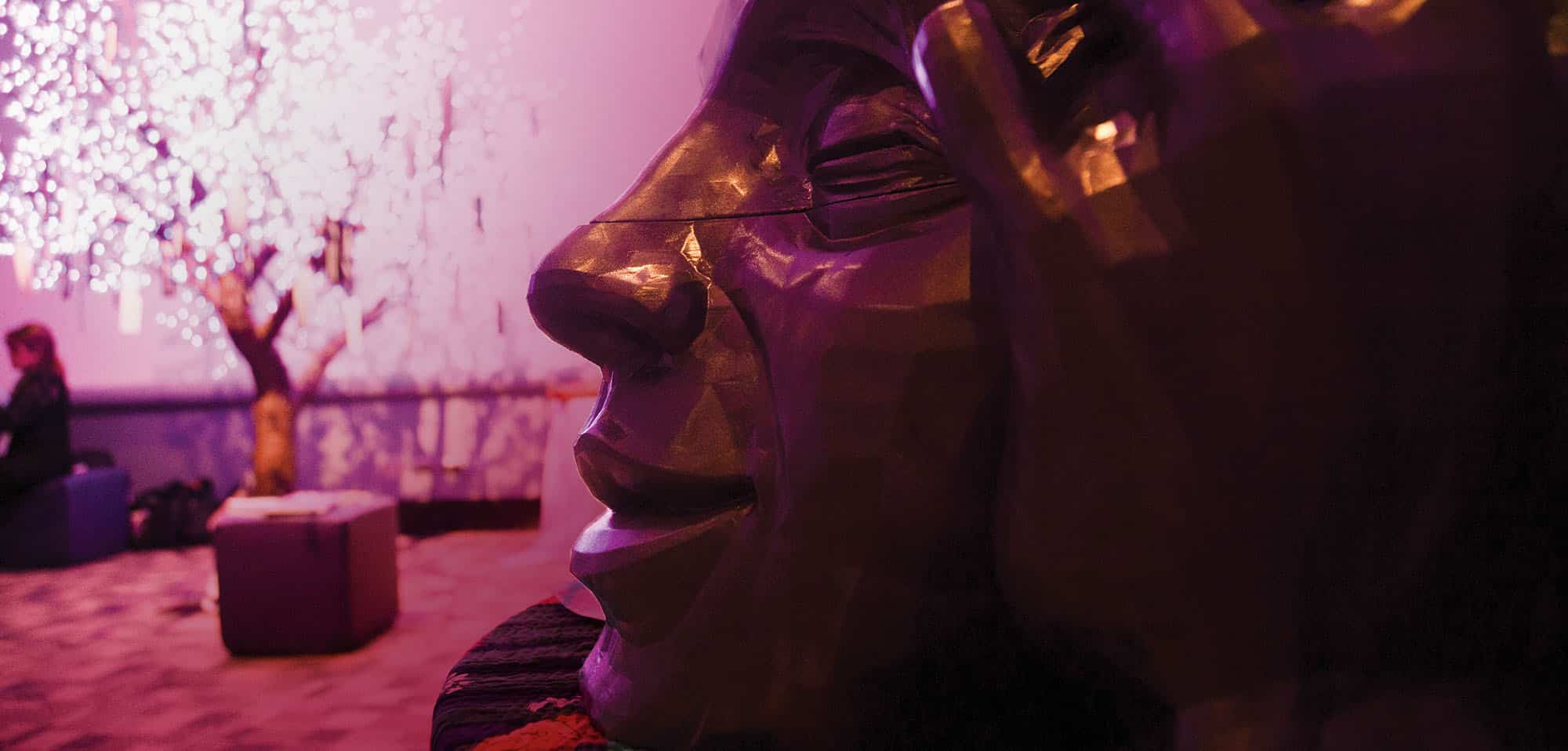
The chant went on for hours, led by vibraphonist Karl Berger: “This is the beginning of time. This is the end of time. This is the beginning of time. This is the end of time….” Jazz drummer Jerry Granelli taught that silence (not sound) is the ground of music. Creativity blossomed in a musical community that actively cultivated an ethos of openness, collaboration, and mindful presence. All were welcome, regardless of musical background, stylistic preference, or previous experience.Extraordinary guest artists arrived including the band Oregon, bassists Charlie Haden and Gary Peacock, blues guitarist Robben Ford, vocalist Jay Clayton, and pianist Art Lande. Concerts and workshops were often interdisciplinary and included dancers Nancy Stark Smith and Barbara Dilley, and poets Allen Ginsberg and Anne Waldman.
Students and faculty valued cooperation over virtuosic display. A day of teaching and learning began with “the big class,” where anyone could suggest anything they wanted to do or learn:
“Let’s play a piece with five flutes and 15 dancers!”
“We were accepting and kind, but we were not saying everything is fantastic all the time. There was discernment, and there was work being done toward growth. Jerry Granelli had both those sides, and he included the people who he thought could do that.”—Art Lande
The curriculum was open and inclusive. Some students played jazz, others did not. Alfred Ledezkpo, a master teacher from Ghana, taught African drumming. Colin Walcott, the Oregon percussionist who had recently recorded with Miles Davis, introduced sitar and tabla.
Music classes and concerts were infused with a spirit of developing mindfulness/awareness. Students practiced Tai Chi with Bataan and Jane Faigao, chanting with Ram Dass and sitting meditation with Chögyam Trungpa Rinpoche. Pianist and bassoonist Bill Douglas arrived in the summer of 1974 to study meditation with Trungpa Rinpoche. With a master’s degree in performance and composition from Yale, Douglas worked closely with Granelli to develop both the summer and year-round music programs.
It was tribal, a celebration of the arts. It was about clarity and passion. If you have passion, you don’t want to accept unconsciousness. —Art Lande
When Trungpa Rinpoche attended one of my concerts, I thought, Uh oh, I better play something spiritual! I played one of my pieces and he said, “Yeah, very good. Play something fast and outrageous, but with lots of space.” I played again and he said, “That’s good too. More space!” Rinpoche wanted to work with me in music, because it was the art form he knew the least about. A year later, I played Bach, and then an improvisation in E lydian, letting things ring, little delicate gestures. Trungpa Rinpoche was. walking around the piano: “Very good. Very good!” I said, “Well, do you have any suggestions?” “More space!”—Bill Douglas
Douglas worked to develop a robust training curriculum that included a survey of music cultures from around the world, jazz and classical music history, and musicianship classes to sharpen the skills and intellectual understanding of developing musicians. Granelli represented freedom, openness, and the spirit of spontaneous creativity.

For more than 40 years, the Naropa Music Program offered students an opportunity to learn about music theory, ear training, history, improvisation, and composition, with special emphasis on mindfulness/ awareness as the ground of creative process. Although the program ended in 2021, music, theater, the visual arts, and dance were essential in the development of contemplative education at Naropa, cultivating intimacy and an appreciation for one’s personal experience, and a spirit of openness and generosity toward the experience of others.
“It was tribal, a celebration of the arts. It was about clarity and passion. If you have passion, you don’t want to accept unconsciousness. Having that opportunity and being around other people who were like-minded, whether they were students or fellow teachers—that sharpened me. It was a good environment for me to learn and grow.”—Art Lande





